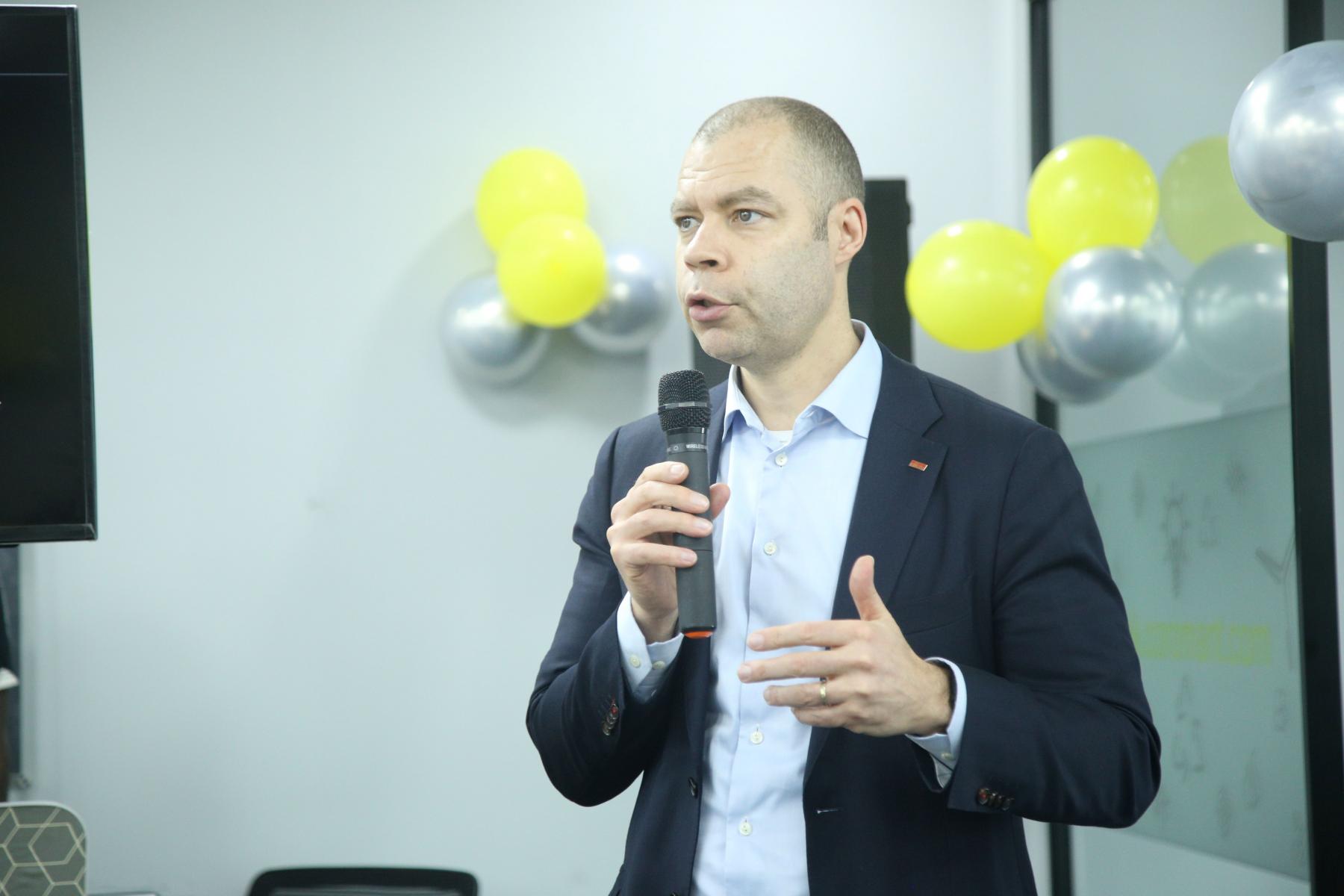 India’s manufacturing sector is thriving, currently employing 20 percent of the country’s population. Through the implementation of different programs and policies, the Indian government hopes to have 25 percent of the economy’s output come from manufacturing by 2025. After his recent visit to India, Michael Eneberg, VP Global Sales and Marketing, Sandvik Coromant, the metal cutting leader, reflects on how the company is supporting industry in India.
India’s manufacturing sector is thriving, currently employing 20 percent of the country’s population. Through the implementation of different programs and policies, the Indian government hopes to have 25 percent of the economy’s output come from manufacturing by 2025. After his recent visit to India, Michael Eneberg, VP Global Sales and Marketing, Sandvik Coromant, the metal cutting leader, reflects on how the company is supporting industry in India.
Assisting aerospace
For many years, the United States and China have dominated the global aerospace market, but now India is demonstrating a significant presence within the sector. As travel recovers from the COVID-19 pandemic, transport is surging across Asia, and India is beginning to invest more money in the sector. Recently, Air India agreed to buy 470 planes from Airbus and Boeing in one of the biggest orders of new passenger aircraft in Indian airline history.
According to the International Air Transport Association, global passenger air traffic is expected to reach 85 percent of its pre-pandemic high, while India’s domestic traffic is already approaching 2019 levels. Sandvik Coromant supplies aerospace manufacturers with complete component solutions for crucial parts of airplanes, ranging from the engine to the frame. In addition to this, as airplanes are not entirely produced in India, manufacturers rely heavily on the global supply chain, including the likes of the company, to fulfill their needs and maintain an efficient supply chain.
Energy sector
India is the third-largest energy-consuming country in the world. To combat this, the country set a target at the global climate summit, COP26, to achieve 500 GW of non-fossil fuel-based energy by 2030. India’s installed non-fossil fuel capacity has increased 396 percent in the last eight and a half years, and in 2022, the country saw the highest year-on-year growth in renewable energy additions, according to Invest India.
Sandvik Coromant has supported the sustainable energy industry since its infancy with the development and optimization of turning, milling, and drilling operations for the machining of these components. These components must be able to withstand high temperatures for more efficient fuel burn and better emissions, so manufacturers call upon HRSAs, stainless steel, and titanium to meet these strict needs. But these materials are often difficult to machine due to their strength-to-weight ratio, toughness, and high heat-resistance properties.
The company supports numerous energy customers in India, who rely on the company to provide tooling solutions that help them efficiently machine complex parts for sustainable energy applications, including the shaft and blades of wind turbines.
Automotive applications
In 2021, the Indian Government approved a new Production Linked Incentive (PLI) scheme for the automotive sector. The Union Cabinet cleared a total incentive scheme of nearly INR 26,000 crore, which will enable the country to boost manufacturing of electric and fuel cell vehicles and drones in India for five years.
It’s no hidden secret that, globally, automotive must electrify and produce lighter vehicles that produce fewer emissions with the goal of phasing out combustion engines. The answer lies in aluminum products. Manufacturers embracing the trend for lighter, yet more challenging, materials must ensure they have access to the right cutting tools. Sandvik Coromant provides manufacturers with a selection of tools for optimized aluminum machining. It has made significant investments into its capabilities in India, and as a result, its Pune facility is the fastest growing production hub of its kind, split into three production units. This includes the development of cemented carbide indexable tools, solid round tools, and tool holders. In fact, the automotive sector is the company’s largest customer for round tools. This is because solid round tools fulfill the demands of high quality and precision that intricate automotive parts require.
To limit transport and lead times for manufacturers, Sandvik Coromant also provides a tool reconditioning service for its customers. Worn tools can be sent to the company’s specialist centers in Europe, Asia, and the Americas, where the same geometry and coating is produced to the original specification. For manufacturers in India, the tools can be sent to the local reconditioning center in Pune. Additionally, this also provides sustainable benefits by reducing the environmental impact of producing new tools, which can instead be reconditioned for further use.
India’s manufacturing position is catching up to the likes of major players such as China and the US, with markets like aerospace making historical investments. Sandvik Coromant is proud to be a part of the supply chain that supports India’s valuable manufacturing sector through optimized tooling solutions that enhance the operations of its manufacturers and the end product.
For more information: www.sandvik.coromant.com